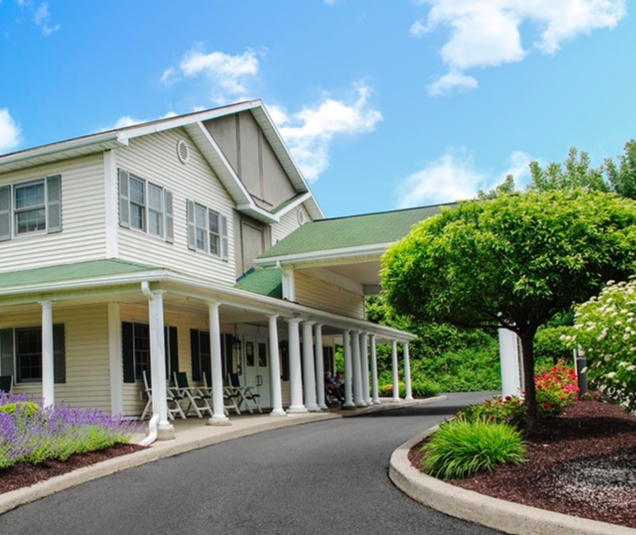Watching a loved one struggle with appetite loss can be both disheartening and worrisome, especially when that loved one is a senior under your care.
Whether your loved one lives with you or they’re enjoying assisted living, you can’t afford to ignore these signs. While a decrease in appetite can be a natural part of the aging process, it can also be indicative of more serious health issues.
Any tips for dealing with appetite loss in seniors begin with understanding you need to be patient—and maybe a little creative—and know when it’s time to seek professional help. Don’t get discouraged, it’s not a reflection on your food. Even the most delicious meals can get ignored by people with appetite loss.
What Causes Appetite Loss in Seniors
Appetite loss in seniors is a multifaceted issue. Various factors, including physiological and psychological changes associated with aging, can impact a desire to eat. Learning how to address these issues starts with properly identifying them. Some common causes of appetite loss in seniors include:
- Aging Effects: Changes in taste and smell, as well as a slower metabolism, can lead to a lesser interest in food.
- Medical Conditions: Chronic illnesses, such as Alzheimer’s, cancer, or heart disease, can result in an aversion to eating.
- Medication Side Effects: Some medications have appetite suppression as a side effect.
Our tips are mostly designed to address appetite loss due to aging. Before exploring your options, rule out any serious health conditions or unintended side effects of medication.
How to Support Seniors with Appetite Loss
While dealing with a decreased appetite may be a reality for many seniors, there are ways you can help support and encourage them to eat.
1. Create an Appetizing Environment
The setting of a meal can significantly affect a person’s willingness to eat. By creating a pleasant environment, you can make mealtimes more enjoyable for your loved one.
Start by building an inviting atmosphere. Soft music, natural light, and comfortable seating can enhance the dining experience. Don’t underestimate the power of social interaction either. Sharing mealtime with family and friends can provide a sense of social connection and enjoyment.
2. Maintain Regular Meal Times
Establishing and adhering to a consistent eating schedule can significantly benefit seniors with appetite loss. You can’t always rely on your loved one’s body to tell them when they’re hungry, so instead of waiting for a cue, make it a habit.
A predictable eating schedule creates a sense of routine, which can be comforting and may encourage your loved one to eat even if they don’t have an appetite.
3. Encourage Regular Physical Activity
Physical activity plays a significant role in appetite stimulation. It also helps seniors maintain muscle mass, supporting overall health. Activities like walking, swimming, or gentle yoga can be low-impact ways for seniors to get their heart rates up. Consult with a healthcare professional to develop an exercise plan.
4. Simplify Mealtime with Finger Foods
Reducing the need for utensils can make mealtimes less frustrating and more enjoyable for seniors, especially those with dexterity challenges. Finger foods offer a convenient solution, allowing seniors to eat independently and at their own pace, fostering a sense of autonomy and dignity.
Chicken strips or nuggets are great staples, but many other nutritious foods can be served as finger foods too. Try some sliced fruits, vegetables with dip, cheese cubes, and small pieces of grilled chicken or fish, helping seniors receive a balanced diet.
5. Offer Small, Frequent Meals
Eating large meals can be overwhelming. Breaking down meals into smaller, more frequent portions can be more manageable and encourage eating. Instead of 3 big meals, experiment with 5 or even 6 smaller ones every couple of hours.
Make sure they’re still getting all their nutrients and calories, just spread throughout the day. You can also offer snacks like nuts, yogurt, or fruit between slightly larger meals.
6. Provide High-Calorie, Nutrient-Dense Foods
Along the same lines as more frequent meals, you can sometimes address a shallow appetite by serving high-calorie, nutrient-dense foods that pack more sustenance in smaller servings. This means less of the physical act of eating, for the same amount of energy.
Avocados, nuts, and nut butters are high in healthy fats and calorie content, while quinoa, chia seeds, and lentils offer ample fiber and protein.
7. Offer Smoothies & Milkshakes
For those struggling with solid foods, smoothies and milkshakes can be a delightful way to pack in essential nutrients. These options are easy to consume and can be customized to fit dietary needs and personal taste preferences.
Smoothies and milkshakes can incorporate a variety of fruits, vegetables, protein powders, and supplements, making them a comprehensive source of vitamins and minerals.
8. Engage Seniors in Meal Preparation
Why not make cooking fun? Participation in meal preparation can be an exciting way for seniors to engage and potentially increase their appetite through the anticipation of a meal they made themselves.
This can be as small as involvement in simple tasks, like washing vegetables or setting the table. You know what your loved one is capable of, so think of how to keep them engaged while avoiding accidents.
9. Keep Notes of What Works
Everybody is different, so maintaining a log of strategies can be invaluable for crafting a personalized approach. Detailed notes help identify specific foods, activities, or environments that encourage your loved one to eat.
Over time, this log can highlight improvements or declines in appetite, offering critical insights for adjustments in care strategies during discussions with doctors.
10. Seek Professional Help
Regular monitoring and a meal time routine can also help with appetite loss. Assisted living or memory care can help with appetite loss in seniors. Living in a senior living community means appetite is regularly monitored, both by caregivers and medical staff. Plus, a regular mealtime routine with a social aspect can help make eating easier.
Appetite loss could also be a sign of depression in seniors, and that can be difficult to manage alone.

Supporting Loved Ones with Signature Senior Care
For more guidance on senior care and well-being, visit Peregrine Senior Living at Shaker. We know the power of supportive environments and make them a part of daily living for our residents. Schedule a tour and see what we mean today!












The votes are in! Introducing our 2026 Valentine’s Day King and Queen and first Runner Up.
Congratulations everyone! ... See MoreSee Less
Great Valentine’s celebration with music by Brian Zapel. We had a fantastic time! ... See MoreSee Less
Happy Valentine’s Day! ❤️
Love takes many forms—between partners, friends, families, and even across generations.
Today we celebrate the love that fills our community: the care shared between residents and team members, the laughter that brightens our halls, and the sense of belonging that reminds us we’re never alone.
May your day be filled with connection, warmth, and heart.
peregrineshaker.com/ ... See MoreSee Less
We had a Valentine visit with the students from St. Gregory’s School! They brought pretty flowers and we shared some sage advice! ... See MoreSee Less
Look at our Valentine craft! Isn’t it heart warming? ... See MoreSee Less
February is American Heart Month, a time to focus on caring for the muscle that keeps us moving and thriving. 🫀
We encourage residents to take heart-healthy steps every day: enjoying balanced meals, staying active, connecting socially, and taking moments to rest and recharge.
Together, we can make heart health a daily celebration of life and well-being.
peregrineshaker.com/ ... See MoreSee Less
We braved the cold and are so glad we did! the piano concert at the Troy Music Hall and lunch at Dinosaur BBQ was a great time. ... See MoreSee Less